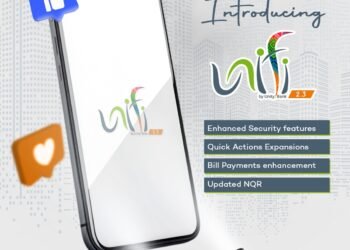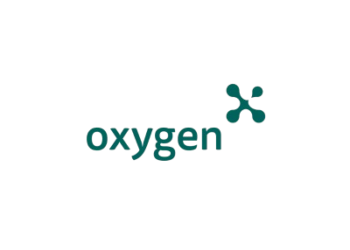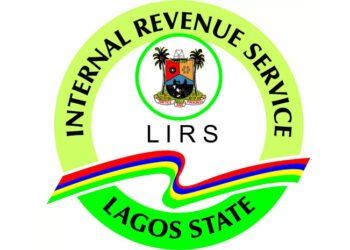Zoho, a global technology company, today said that it grew by 31% in 2023 in Nigeria, one of its key markets in the Africa region. The company has been providing its 55+ apps in Naira to help local businesses avoid fluctuating dollar rates.
Zoho also announced its collaboration with Bridge International Academies in order to support the education of underprivileged children. The announcements were made on the sidelines of Zoholics Nigeria, the company’s annual user conference.
“As we continue to grow our presence in Africa, our focus is on ensuring that our expansion positively impacts the local economy, communities, and the broader business ecosystem,” said Kehinde Ogundare, Country Head, Zoho Nigeria. “This approach aligns with our transnational localism strategy, which emphasises being rooted in local markets while staying globally connected. To support this, we are committed to hiring local talent, strengthening our partner network, and creating products tailored to the local market. Additionally, to serve the community, we are supporting the education of children and also undertaking sustainability initiatives.”
Community and Environment Initiatives
Zoho is partnering with Bridge International Academies to establish a meaningful Corporate Social Responsibility (CSR) initiative in Nigeria, Kenya, and Uganda. The primary objective of this partnership is to support the education of 200 children from underserved communities by sponsoring school uniforms, fees for four terms, and other essential items for students attending Bridge International Academies.
This initiative aims to address the issue of financial constraints that hinder many pupils’ access to essential school supplies. Zoho recognises the crucial role of education in societal development and is committed to breaking down these barriers by supporting Bridge international Academies pupils with necessary supplies.
In addition to this, Zoho aims to assist Bridge international Academies in its digitalisation efforts, offering Zoho Wallet Credits to help them utilise the company’s technology.
“Every child has the right to education, yet many children from underprivileged backgrounds face significant barriers to accessing quality learning opportunities. That’s why we are committed to transforming the lives of millions of children in underserved communities by delivering life-changing education. Through strategic partnerships, we aim to bridge this gap by providing vital resources and high-quality education to the students we serve. We are thrilled and deeply grateful for our partnership with Zoho, as our shared commitment to delivering meaningful value is at the heart of what unites us,” said Foyinsola Akinjayeju, Managing Director, Bridge International Academies, Nigeria.
Zoho is also recycling the billboards of its out of home ads and turning them into bags. Over 500 flexes from Nigeria and 1300+ in Kenya have been recycled so far.
“At Zoho, we believe that our growth should go hand in hand with the success of our customers, partners, employees, and the communities we are part of. In Nigeria, we embrace this same philosophy by hiring locally, expanding our partner network, and offering affordable technology tailored to meet local needs. For the community, we have been investing in youth upskilling initiatives and are now extending support to children’s education. We are also committed to strengthening our sustainability efforts, including expanding our recycling programmes, such as flex recycling,” said Ogundare.
Zoho’s Growth in Nigeria
Zoho has experienced impressive growth in the Nigerian market since commencing operations in 2020. Over the past three years, Zoho has achieved a 43% compound annual growth rate (CAGR) in Nigeria. In 2023 alone, Zoho saw a 21% increase in its partner network. Additionally, the company expanded its local workforce in Nigeria by 40% in the previous year.
Zoho’s success in Nigeria stems from the widespread adaptation of its flagship products, including Zoho Workplace, Zoho Books, Zoho Desk, Zoho CRM, and Zoho One. These products have played a crucial role in optimising business operations, improving customer experience, and enhancing efficiency. Zoho’s success in the Nigerian region is driven by key sectors such as financial services, energy, real estate and construction, IT hardware & IT related services, professional services (non IT), utilities and resources, and retail.
Other upskilling initiatives in Africa
Earlier this year, Zoho revealed several upskilling partnerships across Africa. As part of the Young Creators Program, Zoho partnered with She Code Africa, a non-profit organisation dedicated to empowering and upskilling African women in tech. Zoho conducted “train the trainer” sessions for SCA Academy trainers, equipping them with skills to use Zoho Creator, Zoho’s low-code app development platform. The SCA Academy trainers will then train more students associated with SCA to develop impactful applications using low-code technology, addressing real-world business challenges.
In Kenya, the company joined forces with MOMO Pencils, a leading manufacturer of eco-friendly stationery in Nairobi, for the “Hope for Literacy” program. The program seeks to combat intergenerational poverty by improving access to quality education for children in underserved communities while promoting environmental sustainability and eco-friendly practices in schools.
Zoho also partnered with J-Hub Africa, the digital innovation hub at Jomo Kenyatta University of Agriculture and Technology, to provide training for JKUAT technology students. This partnership will focus on teaching students how to leverage Zoho’s cloud-based business applications, enhancing their technology skills, and preparing them for diverse career opportunities in various industries.
Recently, in South Africa, Zoho collaborated with BabesGotBytes to empower over 40 girls and women with digital skills through a comprehensive one-year boot camp, aimed at bridging the skills gap and increasing female representation in tech. Additionally, Zoho partnered with CodeTelligence to support a 6-month boot camp for 36 economically disadvantaged youth, providing IT training and mentorship to enhance their employability and readiness for the workforce.























